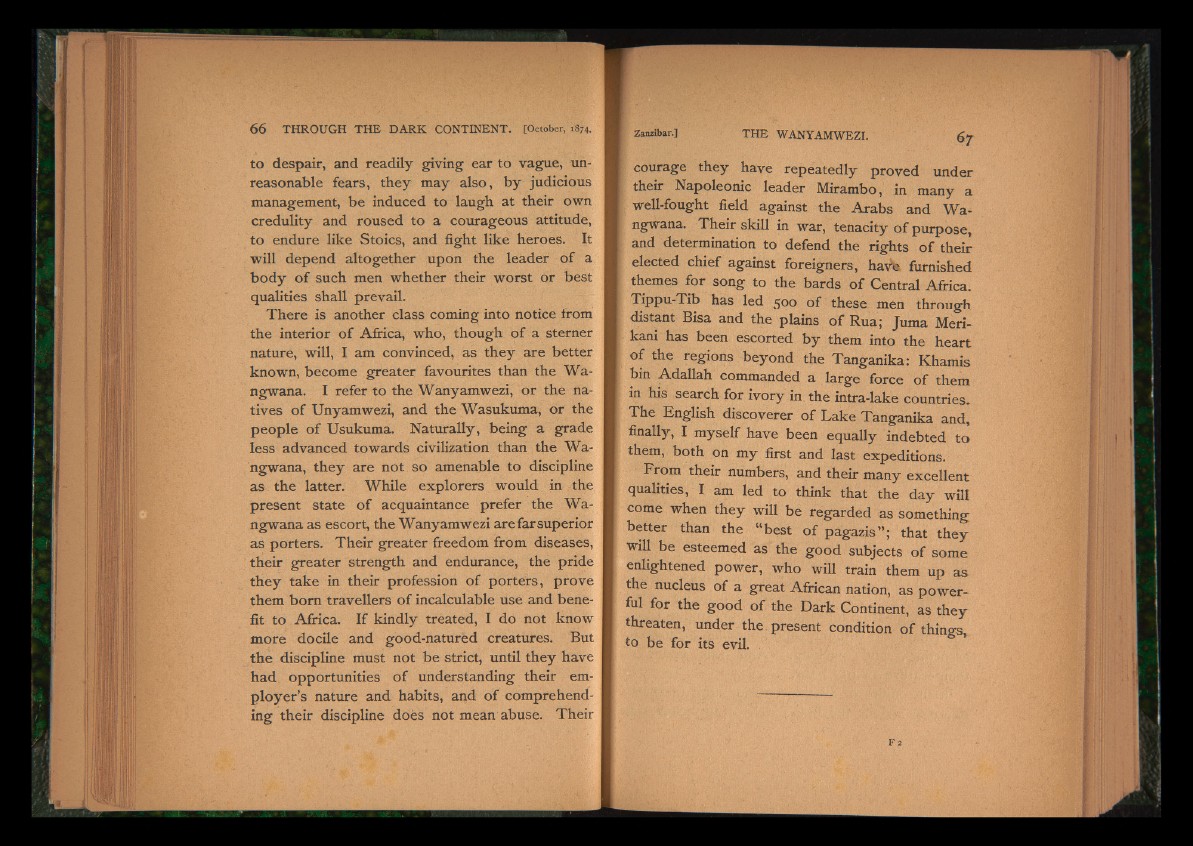
to despair, and readily giving ear to vague, unreasonable
fears, they may also, b y judicious
management, be induced to laugh at their own
credulity and roused to a courageous attitude,
to endure like Stoics, and fight like heroes. It
will depend altogether upon the leader o f a
b o d y o f such men whether their worst or best
qualities shall prevail.
There is another class coming into notice from
the interior o f Africa, who, though o f a sterner
nature, will, I am convinced, as th e y are better
known, become greater favourites than the Wa-
ngwana. I refer to the Wanyamwezi, or the natives
o f Unyamwezi, and the Wasukuma, or the
people o f Usukuma. Naturally , being a grade
less advanced towards civilization than the Wa-
ngwana, th e y are not so amenable to discipline
as the latter. While explorers would in the
present state o f acquaintance prefer the Wa-
ngwana as escort, the Wanyamwezi are far superior
as porters. Their greater freedom from diseases,
their greater strength and endurance, the pride
th e y take in their profession o f porters, prove
them b om travellers o f incalculable use and benefit
to Africa. If kindly treated, I do not know
more docile and good-natured creatures. But
the discipline must not be strict, until th ey have
had opportunities o f understanding their emp
lo y e r ’s nature and habits, and o f comprehending
their discipline does not mean abuse. Their
courage th ey have repeatedly proved under
their Napoleonic leader Mirambo, in many a
well-fought field against the Arabs and Wa-
ngwana. Their skill in war, tenacity o f purpose,
and determination to defend the rights o f their
elected chief against foreigners, haVts furnished
themes for song to the bards o f Central Africa.
Tippu-Tib has led 500 o f these men through
distant Bisa and the plains o f Rua; Juma Meri-
kani has been escorted b y them into the heart
o f the regions beyond the Tanganika: Khamis
Adallah commanded a large force o f them
in his search for ivo ry in the intra-lake countries.
The English discoverer o f L a k e Tanganika and,
finally, I myself have been equally indebted to
them, both on my first and last expeditions.
From their numbers, and their many excellent
qualities, I am led to think that the d ay will
come when th ey will be regarded as something
better than the “ best o f p ag azis ” ; that th e y
will be esteemed as the g o o d subjects o f some
enlightened power, who will train them up as
the nucleus o f a great African nation, as p ow e rful
for the good o f the Dark Continent, as th e y
threaten, under the present condition o f things,
to be for its evil.